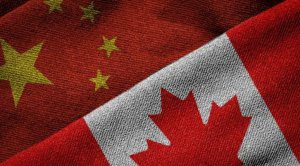 It is important to emphasize that the capture of Michael Kovrig and Michael Spavor was not a mere bump in the road in our relationship with China, writes J. Michael Cole in the Toronto Star.
It is important to emphasize that the capture of Michael Kovrig and Michael Spavor was not a mere bump in the road in our relationship with China, writes J. Michael Cole in the Toronto Star.
This article is part of the Toronto Star’s Saturday Debate series.
By J. Michael Cole, October 12, 2021
The return last month of Michael Kovrig and Michael Spavor, held hostage for more than 1,000 days by China, has been a huge relief to Canada. However, the notion that their release from captivity means a return to normalcy in relations between Canada and China would be as foolhardy as it is dangerous.
Even before Beijing kidnapped two of our own, it was clear that Xi Jinping’s China was an anomaly in the international system, a rising power with the unprecedented ability to cause serious harm to the values that have underpinned our world since the end of the Second World War.
During the time that elapsed between Kovrig and Spavor’s capture and release, China has only become more repressive, more Orwellian, and more self-assured in its ambition to reshape the world so as to make it more hospitable to anti-democratic regimes.
It is important to emphasize that the capture of Kovrig and Spavor was not a mere bump in the road in our relationship with China. Rather, this incident was a symptom, an almost inevitable offshoot, of the kind of regime that we are now forced to deal with.
Under Xi, the Chinese Communist Party (CCP) has tightened its grip on every aspect of Chinese society through a combination of pernicious ideology, excessive paranoia, and censorship directed not only at critics of the regime but in its more absurd iterations, such as the ban on male artists who are regarded as too “effeminate” from performing on television.
Xi, who has turned the party-state into a personal instrument to accomplish his own Mao-style ambitions, has unleashed forces that threaten a second Cultural Revolution.
More troubling still, Xi and his CCP have successfully presented this escalatory assault on liberties in China — to which we must add the neutralization of Hong Kong and vicious repression in Tibet and Xinjiang — as necessary measures to defend China against all enemies, domestic and foreign, and to realize the “China dream,” an ultranationalistic goal that aims to recapture some mythologized past glory.
Meanwhile, China continues to threaten its immediate region with a more assertive military, including its small neighbour Taiwan, the most vibrant democracy in Asia. In recent days, China has sent an unprecedented number of jet fighters and nuclear-capable bombers into Taiwan’s Air Defence Identification Zone to try to intimidate the country.
Within international institutions, Chinese diplomats have used their influence to co-opt officials and, in many instances, to rewrite the rules in ways that often violate the spirit under which those bodies were created. Beijing argues that it is only ensuring such organizations are better adapted to meet the demands of the 21st century, a claim that would be true if we all conceded that our present century should be one characterized by rampant oppression and injustice.
As a country that prides itself in its pursuit of liberal democratic ideals, Canada cannot, in good conscience, pretend it is dealing with a normal country when it comes to Xi’s China, or that, through deepened engagement, we can somehow convince Beijing to reverse course.
To believe today that such an outcome is possible is utterly naive. In fact, business as usual with China will make us complicit in creating a world where the space for human rights, liberty, and democracy is narrowed. And in our interconnected world, we would be foolish to pretend that geographical distance would somehow insulate us from its nefarious effects.
China made important gains due to the pandemic and the moment of inattention that paralyzed much of the democratic world in recent years. But the pendulum is now swinging in the opposite direction, and the world’s democracies are now beginning to push back.
Canada has an important choice to make. It is a choice that will define who we are: a people who believe that the world is what we make it, or as cynics who resign ourselves to forces we believe cannot be countered. That choice will be predicated on how we, the people and our government, decide how to deal the Chinese party-state that constitutes the greatest challenge of this century.
J. Michael Cole is a Taipei-based senior fellow with the Macdonald-Laurier Institute and the Global Taiwan Institute.





